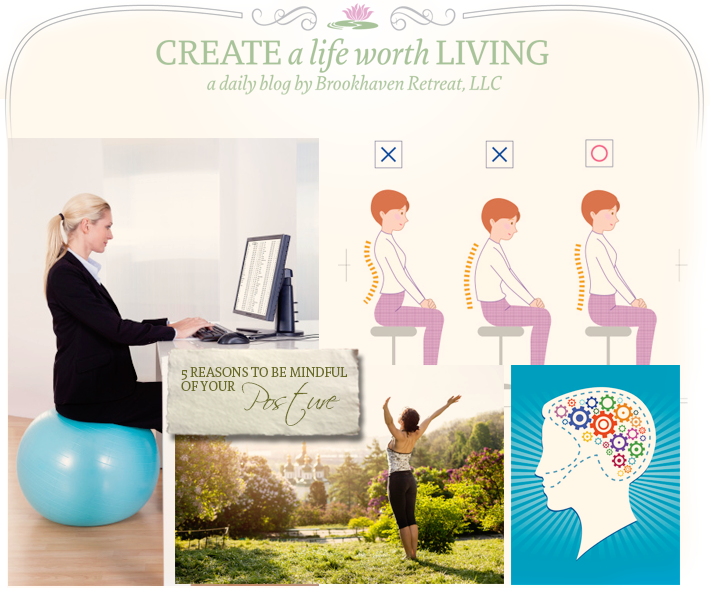
Daily tasks such as driving a car or typing at a computer cause our bodies to hunch forward and our shoulders to lean in. Unfortunately, this posture doesn’t stop once we reach our destination or finish that e-mail, it influences the way we walk, how we stand, and how others interpret our body language. Many of us suffer from the bad habit of poor posture and most people are unaware of the damage it does. With a little practice of being mindful of our posture, we can see vast improvement in these 5 areas:
- A decrease in stress: Slumping increases our body’s production of the stress hormone, cortisol, therefore sitting tall and straight can actually reduce our levels of stress and symptoms of anxiety and depression!
- A boost in energy levels: In a 2012 study at San Francisco State University, researchers found that walking in a slouched position significantly decreased students’ energy level and caused them to feel more depressed.
- Pain alleviation: Poor posture leads to an abundant amount of muscle tension. When our neck is stiff and strained and our shoulders are tense, we are more susceptible to headaches, digestive problems and increased effects of stress. When pain is diminished we are happier and less irritable.
- An improved self-confidence: When our shoulders are back and we stand taller, it not only makes us appear more confident, but we begin to internalize this confidence. Self-confidence allows us to be secure in our emotions and in charge of our decisions. Self-confidence also positively influences social wellness, nurturing friendships and relationships with those we love.
-
A reduction in negative memories: According to a 2003 study, sitting up straight can help evoke positive memories, while slouching can cause us to recall negative memories.
Good posture makes for a happier lifestyle. It improves our mood, reduces stress, supports social interaction and minimizes tension. Throughout the day, take note of your posture. Are your shoulders rounded forward, or are you carrying yourself with pride and self-assurance?
























































